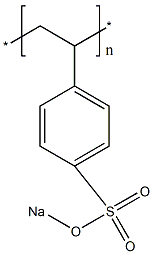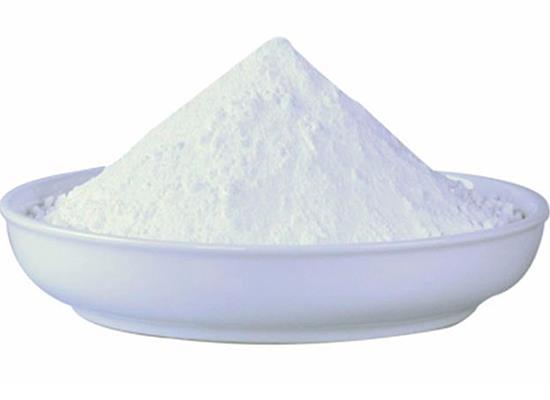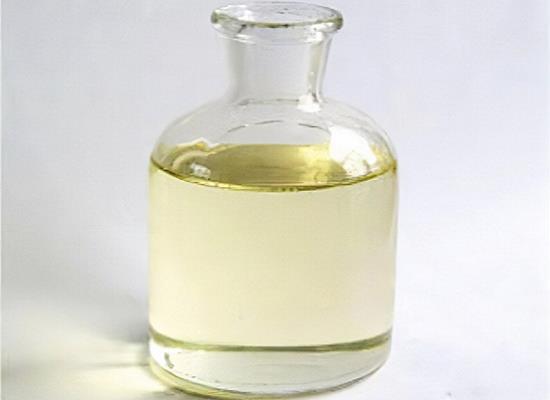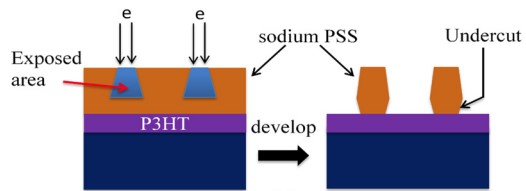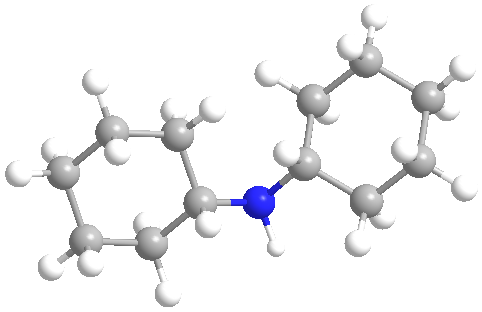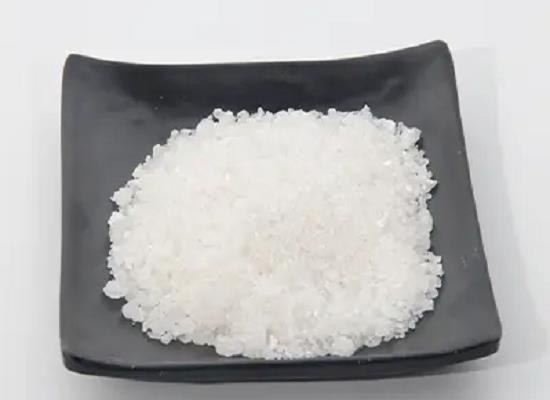Poly(sodium 4-styrenesulfonate) & Biodegradable materials
Description
Biodegradable polymers are widely used in biological applications such as tissue engineering, medical devices (sutures, screws), and drug-delivery systems[1]. At present, there are many biodegradable materials, but their application performance needs to be improved.
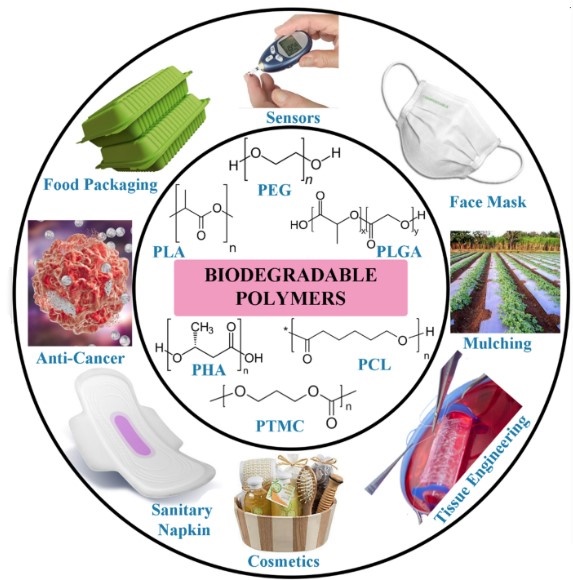
PNaSS could be grafted on PCL surfaces
Amongst various biodegradable polyesters, polycaprolactone (PCL) responds to most requirements such as mechanical properties, non-cytotoxicity, and long-term degradation. This material is a slowly biodegradable polymer that was early synthesized in the 1930s. Previous studies illustrated that immobilizing functional groups on PCL could change surface wettability and induce selective protein adsorption and bioactivity. To enhance cell adhesion, proliferation, and differentiation, polymeric surfaces can be functionalized in several ways, for example, surface treatment by oxidation (photo-irradiation, electron-beam, plasma, and ozone-induced) or grafting of specific functional groups. Sodium styrene sulfonate (NaSS) is one of the candidates selected for this grafting process. Research has found that the presence of a poly(sodium styrene sulfonate)-grafted (PNaSS) layer on the surface improves the biological response of PCL and the enhancement of the bioactivity of PCL ligament by functionalization was shown to improve cell adhesion. Hence, PNaSS has been grafted on PCL surfaces (films, fibers, and fabrics) leading to a positive influence on the cell behavior and activity in vitro and in vivo[2]. The mechanism that leads to this response involves the binding of proteins on the surface, and this interaction can improve further cell response and activity.
PSS-modified Graphene nanosheet
Graphene is a one-atom-thick two-dimensional layer of sp2-bonded carbon. The incorporation of graphene into biodegradable polymers provides an effective way of reinforcing their properties. However, the graphenes used in those studies were unmodified ones, which tended to agglomerate in the PCL matrix. Poly(sodium 4-styrenesulfonate) (PSS) was found to be able to prevent reduced graphene oxide from agglomeration upon reduction by hydrazine,33 and could be used to facilitate the preparation of graphene through electrolytic exfoliation of graphite, as the aromatic rings of PSS could form edge-to-face interaction (π–π interaction) with graphene surface. Hence, modify graphene with PSS by direct ultrasound of water suspension of graphene in the presence of PSS, then incorporate PSS-modified graphene into PCL to form composites[3]. Due to the good dispersion and strong interfacial adhesion of the composites, the tensile strength and Young's modulus increased gradually with increasing PSS modified Graphene nanosheet loading within 0.5 wt%, and the elongation at the break did not reduce but increased.
References
[1] Nguyen T, et al. Correlating degradation of functionalized polycaprolactone fibers and fibronectin adsorption using atomic force microscopy. Polymer Degradation and Stability, 2021; 195: 109788.
[2] Nguyen T, et al. Kinetic and degradation reactions of poly (sodium 4-styrene sulfonate) grafting “from” ozonized poly (ϵ-caprolactone) surfaces. Polymer Degradation and Stability, 2020; 176: 109154.
[3] Wang M, et al. Poly(sodium 4-styrenesulfonate) modified graphene for reinforced biodegradable poly(ε-caprolactone) nanocomposites. RSC Advances, 2015; 5: 73146-73154.
You may like
Related articles And Qustion
See also
Lastest Price from Poly(sodium 4-styrenesulfonate) manufacturers
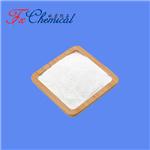
US $0.00/KG2025-04-21
- CAS:
- 25704-18-1
- Min. Order:
- 1KG
- Purity:
- 98%min
- Supply Ability:
- 30tons/month

US $10.00/KG2025-04-21
- CAS:
- 25704-18-1
- Min. Order:
- 100KG
- Purity:
- 99%
- Supply Ability:
- 100 mt
